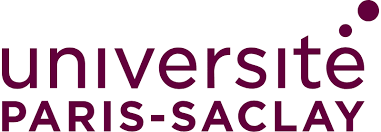Teaching
The associate professor recruited will join and become involved in the Pharmaceutical Technology and
Biopharmacy teaching department.
In particular, the associate professor will teach solid dosage forms for pharmacy students in the undergraduate program and the Quality of Pharmaceutical and Cosmetic Product Production (Q3PC) professional degree program. The person recruited will also be involved in professional project activities, helping students to find their bearings and integrate into the world of work.
Given the research profile, the associate professor could introduce the use of data in pharmaceutical
development as a conference in the industrial pharmacy sector (UE79A) and in an optional teaching unit on
artificial intelligence currently under consideration.
The list of courses concerned by the position is as follows:
– D.F.G.S.P. 2: Teaching unit 13 “Formulation and manufacturing” (practical work and tutorials )
– Optional teaching unit: Generics and Biosimilars: context, specificities, and case studies (tutorials and
practical work)
– Professional degree program Q3 PC (courses and practical work)
– D.F.G.S.P. 2: Teaching unit 19 “Professional project” (tutorials )
– Master 1 degree: Teaching unit 914 “From conventional dosage forms to innovative delivery systems:
formulation strategies” (tutorials )
Some courses will take the form of case studies or tutorials. They will take into account the latest teaching
methods.
Research activities
The successful candidate will join the Multiscale Physical Chemistry for Pharmaceutical Sciences (MULTIPHASE) team at the Institut Galien Paris-Saclay (UMR CNRS 8612). The main aim of this unit is to design new pharmaceutical systems and strategies for the controlled and targeted delivery of drugs. This recruitment is part of the MULTIPHASE team’s desire to implement new methodologies that cut across its various themes, in particular the design and application of tools integrating data science (modeling, simulation, artificial intelligence, etc.) to support the development of lipid assemblies for healthcare.
The team designs supramolecular assemblies based on characterization of the structural, thermodynamic and interfacial properties of compounds and materials of interest, mainly lipids and amphiphiles (custom-designed and synthesized, commercial or industrial). The assemblies formed, either spontaneously or with the aid of shaping technologies, are then placed under ad hoc conditions that will enable their functionalities to be assessed. These systems are envisaged either as biomimetic models, or as tools for transport, controlled or targeted delivery of active substances for pharmaceutical, or even cosmetic or food applications. In particular, the team is developing vesicles (liposomes, porphysomes, etc.), ISAsomes, Janus particles, nanoemulsions, solid nano- and microparticles for applications mainly in oncology, infectiology and neurology. In its traditional approach, the development of new formulations is generally iterative, consuming time, human resources and materials. Certain know-how and expertise can speed up the process, but these developments remain essentially based on the “trial-and-error” principle. The aim of this project is therefore to create and/or implement ideally predictive numerical tools that will help in the development of these supramolecular assemblies.
The candidate will therefore have to propose an original research project in line with this general framework
and with the MULTIPHASE team’s themes. Trained as a pharmacist, engineer or scientist, he/she will have skills in formulation and/or pharmaceutical process engineering, as well as in the use of data analysis tools.
More information here.



